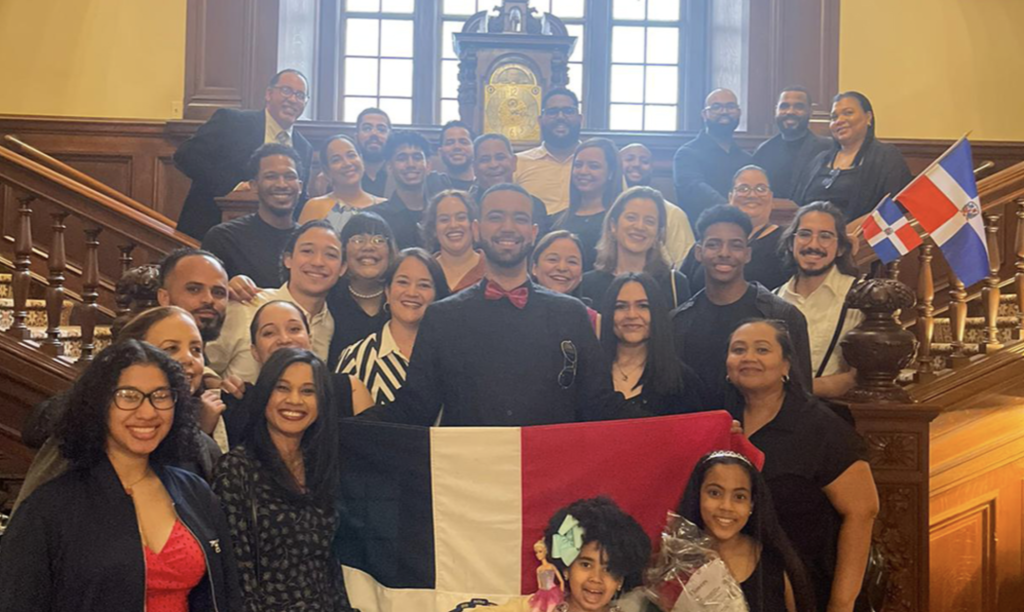
On Saturday, 17 June 2023, 33-year old Richard Bidó Medina, from Villa Tapia, Hermanas Mirabal province graduated as a Psychiatrist at Harvard obtaining the 99th percentile in the National Psychiatry Resident Examination. He is currently collaborating, remotely, with several research projects in the Dominican Republic.
A gifted Dominican child, Richard Bidó Medina worked his way up through the Dominican system and today is a highly respected medical professional of the mind at Harvard University in Boston, Massachusetts. He also works in his fields of psychiatry and neuroscience at Massachusetts General Hospital.
He credits his parents and his own drive to excel for his success. He works as a psychiatrist and associate director of the Hispanic Clinic and the Psychiatric Emergency Department, and is a member of the Harvard Medical School faculty and the Division of Public and Community Psychiatry.
In an interview for El Caribe, he said he was always a curious child as he grew up in a rural area of Villa Tapia, Hermanas Mirabal province with his parents, today two retired school teachers, Luis Bidó and Maritza Medina. He said they spared no effort so he could access opportunities to develop and always said they would find a way.
In the interview, he explained by two he could already read. He graduated at 14 from his hometown high school in Villa Tapia. He convinced his mother he had to learn English, and she found the way to send him to study in La Vega, not knowing at the time how important knowing English would be to his future career.
He went on to study medicine at the San Francisco de Macorís campus of the state university (UASD), graduating at 21 years magna cum laude. He also studied philosophy and became a doctor in neurosciences. At 24, driven by his passion for research and his interest in learning more about how the brain works, he pursued a PhD in Neurosciences and received a Fulbright Scholarship from the US Government to study at the University of Illinois at Urbana-Champaign.
With his doctoral thesis, Richard contributed to identify structural and functional brain mechanisms causing complex neurological manifestations in patients with systemic Zika virus infection, for which he frequently returned to the Dominican Republic.
He also conducted research on cognitive flexibility in patients with depression and anxiety. This study was catalogued as a scientific contribution of international importance and for this reason he was awarded the highest distinction of the university: the Illinois International Graduate Achievement Award.
At present, he collaborates with a project in the country that seeks to identify student populations at risk of committing suicide.
Read more in Spanish:
El Caribe
CDN
26 June 2023

